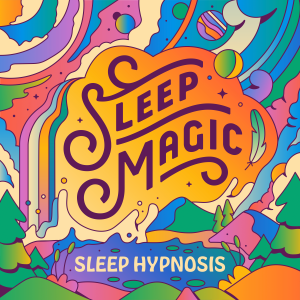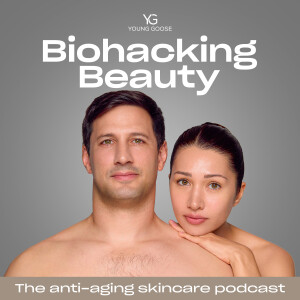

Cornell University, September 18, 2020
A recent review published in the British Medical Journal analyzed studies on vitamin D supplementation. Researchers from the United States and China found that it reduces the risk of cancer-related death by 16 percent.
Vitamin D linked to reduced risk of cancer deathThere are three sources of vitamin D: from one’s diet, from supplements and through sunlight exposure. In the case of the latter, the body naturally produces the micronutrient, leading to its moniker “the sunshine vitamin.”
The cancer-related benefits of vitamin D have been reported numerous times in the past. One of the first studies demonstrated a link between non-skin cancers and the levels of sunlight that fall in different geographic latitudes. According to its lead researcher, Frank Apperly, the sunlight gave “a relative cancer immunity.”
While Apperly’s study was largely ignored during its time, it was rediscovered later on and more studies on the link between cancer and vitamin D appeared. For instance, previous research proposed that vitamin D deficiency increases the risk of colon and prostate cancer.
For the current study, the researchers looked at 52 randomized controlled trials that compared the effects of vitamin D supplementation to those of a placebo or no treatment. About 7,450 participants were included in the studies.
Results showed that vitamin D supplementation reduced cancer death risk by 16 percent. The finding was particular to cancer-related death as all-cause mortality risk remained virtually unchanged after supplementation.
The researchers added that the reduced risk of cancer death was best observed among participants who took supplements of vitamin D3 — what the human body produces naturally upon exposure to sunlight. Vitamin D3 is also found in animal-based foods such as egg yolk and fish oil.
They recommended taking vitamin D3 supplements for at least three years to reap its benefit. They explained that among the trials that they examined, those that involved longer supplementation showed greater evidence for the cancer-related benefit of vitamin D3.
“Another finding from subgroup analysis suggested that […] the benefit of reduced mortality was seen in trials with longer follow-up but not in those with a shorter follow-up. According to these findings, supplementation with vitamin D3 for at least three years should be considered,” wrote the researchers.
More studies on the anti-cancer benefit of vitamin DRecent studies also found the link between reduced risk of cancer-related death and vitamin D supplementation.
In a recent study published in the Journal of Clinical Oncology, researchers looked at previous research that examined the use of vitamin D versus a placebo over at least three years. The studies included almost 80,000 cancer patients with an average age of 68.
They found that those who took vitamin D supplements for three years and more had a 13 percent reduced risk of cancer-related death.
“The difference in the mortality rate between the vitamin D and placebo groups was statistically significant enough that it showed just how important it might be among the cancer population,” said lead author Tarek Haykal of the Michigan State University and the Hurley Medical Center in Flint, Michigan.
In another study published in the New England Journal of Medicine, researchers randomly assigned half of 25,800 participants to vitamin D supplementation and the other half to a placebo. They were followed up for an average of five years.
The researchers found that cancer-related deaths in the vitamin D group were reduced by 17 percent compared to the placebo group. When participants had been taking vitamin D for more than two years, deaths were reduced by 25 percent.
These findings illustrate that vitamin D can help reduce the risk of dying from cancer.
Mango Leaf Extract's brain-boosting capabilities revealed after 5 year R&D study
Northumbria University (UK), September 16, 2020
A new study has been published that builds upon previous research showing ‘experiential’ benefits from the Zynamite ingredient platform. The new clinical trial, led by Professor David Kennedy, Director of the Brain, Performance and Nutrition Research Centre at Northumbria University and published in Nutrients, suggests a rapid and sustained boost for a wide range of cognitive functions after a single use of the ingredient. Zynamite is a patent-pending, proprietary Mangifera indica extract, standardized to ≥ 60% mangiferin, developed from sustainably harvested mango leaves. A self-affirmed GRAS ingredient, it has a portfolio of safety data and has been the subject of three pre-clinical and now seven clinical studies that demonstrate performance enhancement in both cognitive and physical performance.
The new study is indicative of a robust and continuing program of scientific study supporting Zynamite and underscores its potential as a leading ingredient for cognitive and physical performance. A randomized, double-blind, placebo-controlled crossover study, published in 2019, was conducted to determine whether a single dose of Zynamite administered one hour before exercise would increase cycle-sprint performance. Subjects performed three Wingate sprint tests interspaced by 4 minutes and a final 15-second sprint after induced ischemia (blood flow restriction, which simulates exhaustion). Peak power was improved by 3.8% in one hour compared to placebo in subjects who took just one dose of Zynamite. Of note, the amount of quercetin in Zynamite (140 mg) is significantly lower than amounts of quercetin shown to produce ergogenic effects in previous studies, suggesting that this combination may have synergistic effects.
University of California at Irvine, September 19, 2020
Experiencing multiple stressors triggered by the COVID-19 pandemic—such as unemployment—and COVID-19-related media consumption are directly linked to rising acute stress and depressive symptoms across the U.S., according to a groundbreaking University of California, Irvine study.
The report appears in Science Advances.
"The pandemic is not hitting all communities equally," said lead author E. Alison Holman, UCI professor of nursing. "People have lost wages, jobs and loved ones with record speed. Individuals living with chronic mental and physical illness are struggling; young people are struggling; poor communities are struggling. Mental health services need to be tailored to those most in need right now."
In addition, the research highlights the connection between mental health and exposure to media coverage of the COVID-19 pandemic, suggesting the need to step away from the television, computer or smartphone to protect psychological well-being.
"The media is a critical source of information for people when they're faced with ambiguous, ongoing disasters," said Roxane Cohen Silver, professor of psychological science and one of the study's principal investigators. "But too much exposure can be overwhelming and lead to more stress, worry and perceived risks."
With funding from a National Science Foundation RAPID grant, Holman, Silver, and co-investigators Dana Rose Garfin and Rebecca R. Thompson conducted a national survey of more than 6,500 U.S. residents in March and April 2020, as illness and deaths were rising around the country. Using the NORC AmeriSpeak panel, the study was the first of its kind to examine early predictors of rising mental health problems across the nation. The design let researchers evaluate the effects of the pandemic as it was unfolding in real time.
"Over the course of the study, the size of the pandemic shifted dramatically," Holman said. Accordingly, people surveyed later in the study period reported the highest rate of acute stress and depressive symptoms.
The UCI team's findings offer insights into priorities for building community resilience in the face of the COVID-19 pandemic:
- Those with pre-existing mental and physical conditions are more likely to show both acute stress and depressive symptoms.
- Secondary stressors—job and wage loss, a shortage of necessities—are also strong predictors in the development of these symptoms.
- Extensive exposure to pandemic-related news and conflicting information in the news are among the strongest predictors of pandemic-specific acute stress.
"It's critical that we prioritize providing resources to communities most in need of support right now—the unemployed, poor or chronically ill people, and young people," Holman said. "We also encourage the public to limit exposure to media as an important public health intervention. It can prevent mental and physical health symptoms and promote resilience."
Zhaoqing Medical College (China) and Inner Mongolia Medical University, September 17, 2020
According to news reporting originating in Guangdong, People’s Republic of China, research stated, “Type 2 diabetic osteoporosis (T2DOP) has become a common secondary cause of osteoporosis that accelerates bone loss and leads to bone fractures. The aim of the current study was to investigate the association between the anti-osteoporotic effect of curcumin (Cur) and the transforming growth factor (TGF)beta /Smads signaling pathway.”
The news reporters obtained a quote from the research from the Department of Pharmacy, “Male Sprague-Dawley rats were used in the experiments. The type 2 diabetes mellitus (T2DM) animals were treated with Cur for 8 weeks and blood lipid markers, bone microstructure and bone biomechanics were then evaluated. The mRNA expression levels of TGF beta 1, type I TGF beta receptor (T beta RI), T beta RII and Smad2/3 were determined using reverse transcription-quantitative PCR (RT-qPCR) and immunohistochemistry. The body weight of rats with type 2 diabetes-induced osteoporosis increased (P
More Episodes
All Episodes>>You may also like
Create Your Podcast In Minutes
- Full-featured podcast site
- Unlimited storage and bandwidth
- Comprehensive podcast stats
- Distribute to Apple Podcasts, Spotify, and more
- Make money with your podcast
- Privacy Policy
- Cookie Policy
- Terms of Use
- Consent Preferences
- Copyright © 2015-2025 Podbean.com












